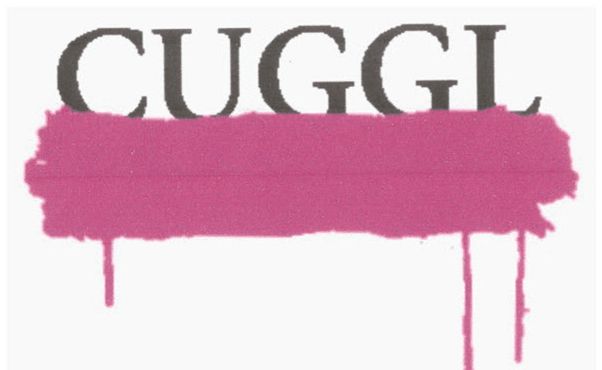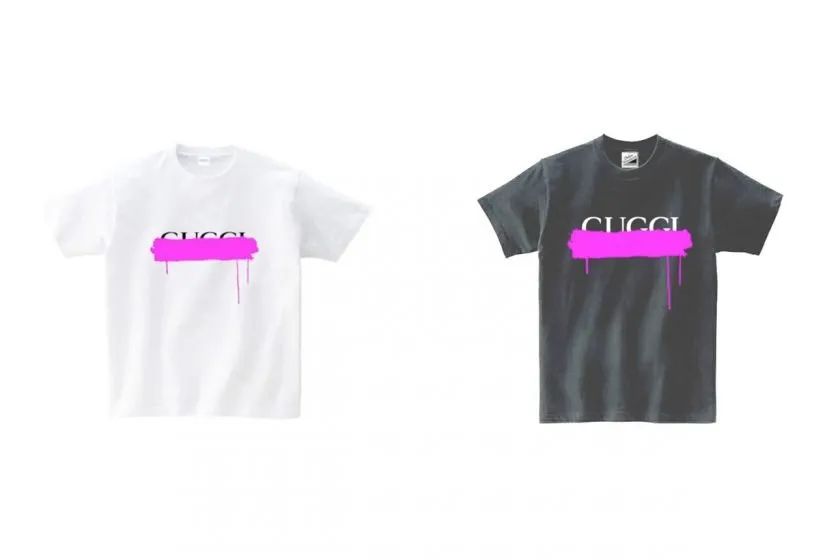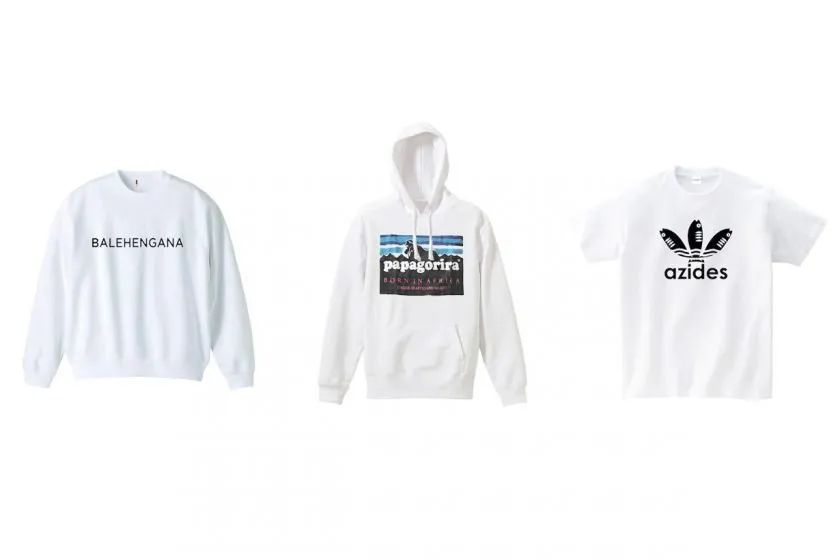Luxury Fashion houses are very protective of their intellectual property and battle hard over their international image and trademark rights. However, this summer, Italian brand icon Gucci came up against a more unusual opponent in Japan ... and lost.
Background
In March 2021, Nobuaki Kurokawa, an irreverent entrepreneur known for marketing clothing and accessories with images parodying famous logos, was granted a trademark for the following mark in Japan under Class 25, clothing and footwear.

The published mark consists of the characters
"CUGGL" with a pink-painted line element
predominantly underneath the wording. However, the T-shirts
actually sold by Kurokawa in connection to the mark (on his website
called "parodys", no less!) have the pink element
obscuring most of the wording, as in the examples below.

Gucci strikes back
Gucci was quick to file an opposition with the
Japanese Patent Office (JPO) in July 2021,
claiming the opposed mark violated requirements in Article
4(1)(vii), (xv), and (xix) of the Japanese Trademark Act.
Art. 4(1) No trademark may be registered if
it:
(vii) is likely to negatively affect public
order;.....
(xv) is likely to cause confusion in connection with the
goods or services pertaining to a business of another
person;....
(xix) is identical with, or similar to, a trademark which is well known among consumers in Japan or abroad as that indicating goods or services pertaining to a business of another person, and is used for unfair purposes (i.e., gaining unfair profits, causing damage to the other persons, or any other unfair purposes).
Specifically, Gucci argued that CUGGL was intentionally designed to be similar to their GUCCI mark and was filed in bad faith to free-ride on the goodwill and repute of their mark and to dilute its distinctive quality among consumers. They also added that consumers would likely assume the hidden wording in the publicly-available T-shirts relating to the mark read "GUCCI", not "CUGGL".
Surprise ruling
In their ruling in July 2022, the JPO acknowledged the familiarity and reputation of the GUCCI word mark amongst consumers. However, they still dismissed Gucci's action, finding that the two marks were sufficiently district in visual, phonetic, and conceptual terms such that the likelihood of consumers being confused about the source of goods was very low.
The JPO concluded that Gucci had not submitted any evidence that specifically indicated that CUGGL owner Kurokawa had the purpose of obtaining unfair profits or inflicting damage on their reputation.
The JPO thus formally reconfirmed the registration of the CUGGL mark in Class 25 in August 2022.
The JPO's sense of humour?
The JPO's somewhat surprising ruling on the side of the upstart vs the established player may be partly due to the subjective opinion on parody.
Kurokawa has previously sought trademarks for designs that satirise other famous brands (see below). The JPO likely recognises that sophisticated Japanese consumers are too savvy to confuse such lookalike marks for the real thing.

Quoted in the Financial Times, one Japanese attorney said that the JPO "tends to decide that people are smarter than the parody-allergic big brands would like", which may come as a shock to international powerhouses like Gucci. In contrast, Japanese firms such as Nissan and Honda have refrained from going after small-scale parodies in Japanese courts for years.
We might conclude that the JPO is doing its job in trying to ensure a level playing field so that smaller businesses can prosper. This is certainly in keeping with the JPO's 10-year plan to become the international gold standard for competitiveness and quality amongst global patent offices (see our article relating to this— "Positive IP trends in Japan for overseas applicants.")
Gucci's next move?
It seems unlikely that Gucci will let things rest there. They have options, including filing infringement actions or passing off claims with respect to the Gucci name.
The GUCCI and CUGGL marks themselves may be dissimilar, but it's harder to argue that even savvy consumers would not be confused by the T-shirts sold by Kurosawa with respect to the source of the goods.
My own impression of the T-shirt design is that it indicates some sort of protest against Gucci (most likely for fashionable purposes only). Whilst this is probably Kurokawa's tongue-in-cheek aim, it will be interesting to see what Japanese courts make of it if Gucci decides to pursue the matter.
Originally Published 25 November 2022
The content of this article is intended to provide a general guide to the subject matter. Specialist advice should be sought about your specific circumstances.

